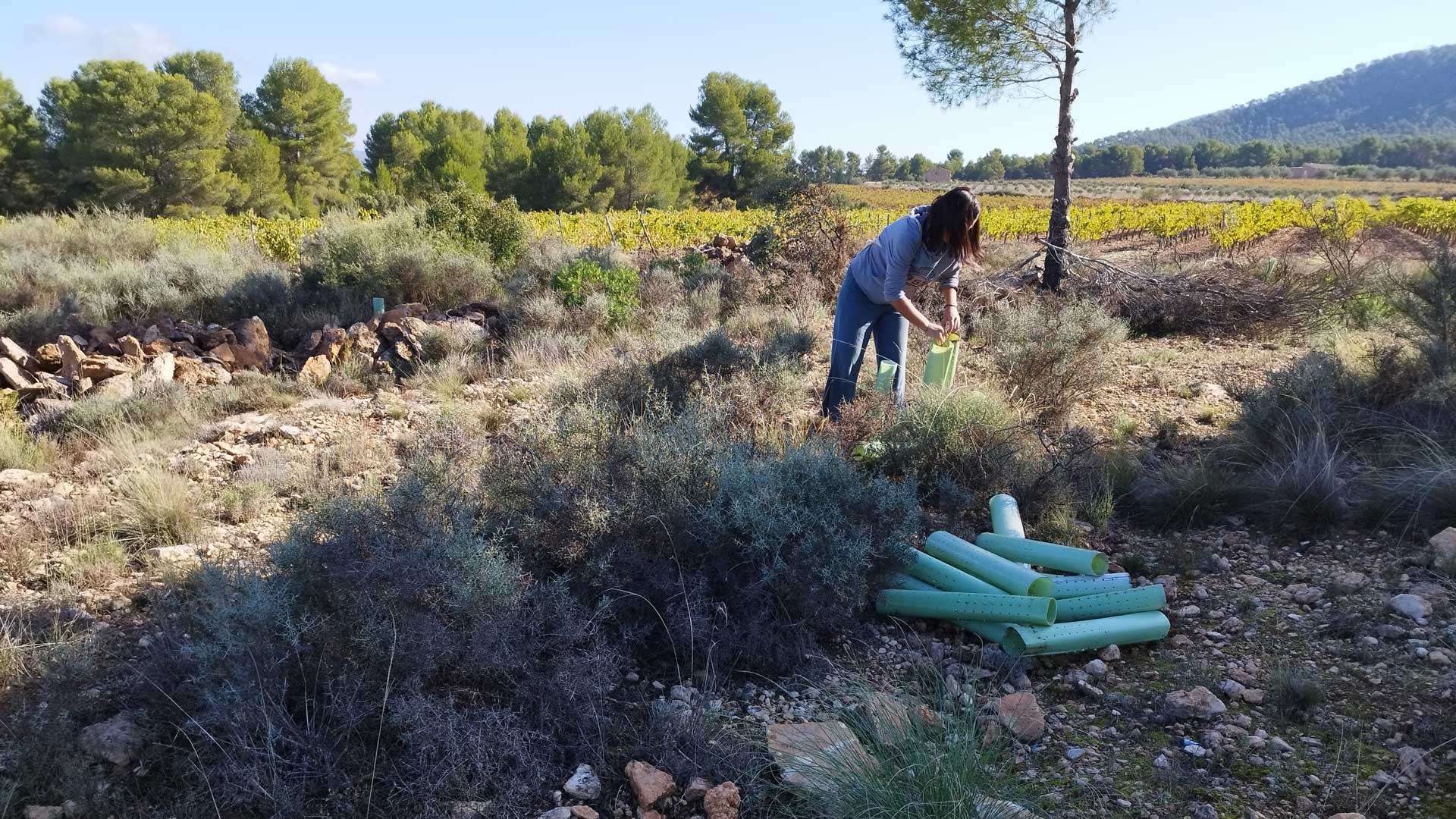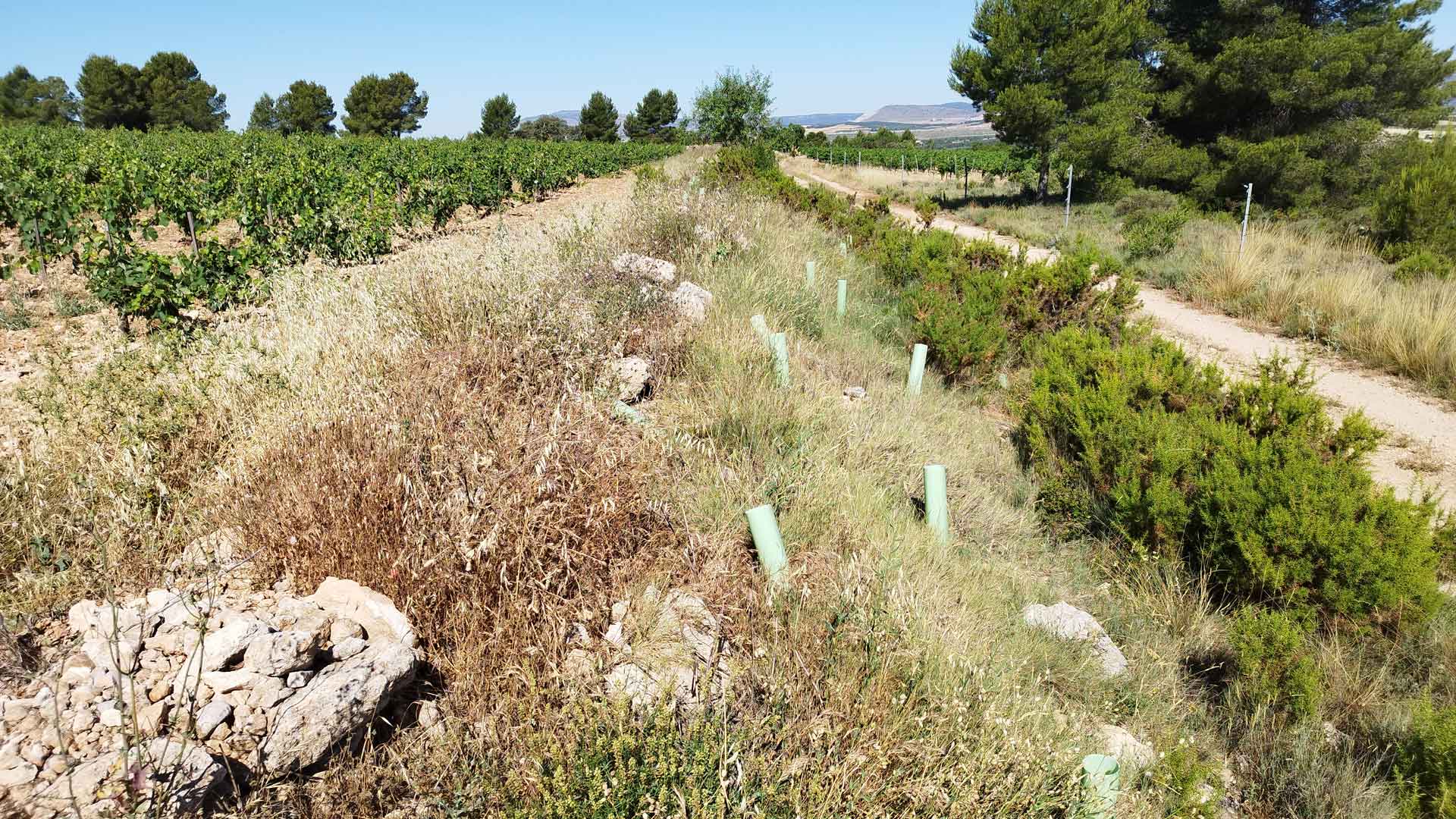2021 to 2022 involved launching the first planting wave in Valencia. This project is located in the Terres dels Alforins region, known for being a prominent wine-producing area. Collaboration with three vineyards began to implement sustainable farming practices, with participants expressing enthusiasm to restore agricultural landscapes in the area.
The main objective of the project is to restore local ecosystems — creating carbon sinks, limiting erosion, contributing to biological pest control, and increasing ecological infrastructure for biodiversity. We also aim to promote recognition of this area as a historic wine-producing region evolving towards sustainability.

